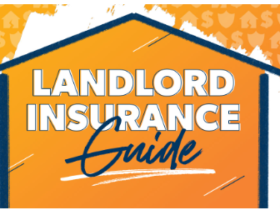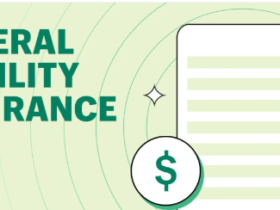Home Insurance
Home insurance, is a vital safeguard for protecting your most valuable asset—your home. If you’re new to the process of getting a home insurance quote or want to ensure you’re getting the best deal, you’re in the right place. This guide breaks down everything you need to know about home insurance quotes, including what they cover, how to compare quotes, and tips for saving money on your premium.
What is a Home Insurance Quote?
A home insurance quote is an estimate of the cost you’ll pay for an insurance policy that protects your home and its contents from various risks. These risks include natural disasters, theft, vandalism, and liability if someone is injured on your property. The quote is based on several factors that insurers use to determine your risk level and, in turn, your premium.
The quote is a non-binding estimate, meaning it’s not final until you accept a policy. However, it gives you an idea of what to expect in terms of cost and coverage.
Key Components of a Home Insurance Policy
Before diving into the details of how to get quotes, it’s essential to understand the main components of home insurance. Home insurance typically includes:
- Dwelling Coverage
This covers the structure of your home, including walls, roof, and foundation, against damage from fire, wind, hail, and other risks specified in the policy. Dwelling coverage is essential for repairing or rebuilding your home if it’s damaged. - Personal Property Coverage
This coverage protects your personal belongings—furniture, electronics, clothing, and more. Most policies cover your possessions against risks like theft, fire, and other perils, up to a certain limit. - Liability Coverage
Liability coverage protects you if someone is injured on your property or if you’re legally responsible for property damage. It helps cover medical bills, legal fees, and potential settlements. - Additional Living Expenses (ALE)
Also known as loss of use, ALE covers the cost of living elsewhere if your home becomes uninhabitable due to a covered loss. This includes temporary housing, food, and other living expenses. - Other Structures Coverage
If you have additional structures on your property, such as a garage, shed, or fence, this part of the policy helps cover damage to these structures.
Factors Affecting Home Insurance Quotes
When you request a home insurance quote, insurance providers consider various factors that influence the cost of your premium. Here’s a breakdown of some of the primary factors:
- Location of Your Home
The location affects the risk of natural disasters, crime rates, and the cost of rebuilding. Homes in areas prone to floods or hurricanes often have higher premiums due to increased risk. - Home’s Age and Condition
Older homes or those with outdated wiring, plumbing, or roofing are usually more expensive to insure. Newer homes may qualify for discounts if they have modern safety features. - Home Size and Structure
The size and materials used in your home’s construction impact the cost of rebuilding and, therefore, your insurance premium. Larger homes or those built with specialized materials may cost more to insure. - Security Features
Homes with security systems, smoke detectors, and other safety features often qualify for discounts on insurance premiums because they reduce the risk of theft or fire damage. - Coverage Limits and Deductible
Your chosen coverage limits and deductible significantly affect your premium. Higher coverage limits mean more protection but increase your premium, while a higher deductible lowers your premium but increases out-of-pocket costs in a claim. - Your Claims History
Insurance companies may consider your claims history to evaluate the risk of future claims. If you’ve filed multiple claims in the past, your premium might be higher.
How to Get Home Insurance Quotes
There are several ways to get a home insurance quote. Here are some of the most effective methods:
- Online Comparison Websites
Comparison websites allow you to input basic information about your home and receive quotes from multiple insurers. This is one of the fastest ways to get a general idea of costs. - Directly from Insurance Companies
Many insurance companies offer quotes through their websites, or you can call an agent. Going directly to an insurer allows you to ask specific questions and get more personalized assistance. - Through an Insurance Agent or Broker
Independent insurance agents or brokers work with multiple insurers and can help you compare quotes. They can also provide guidance on coverage options and policy features that fit your needs.
Tips for Comparing Home Insurance Quotes
When comparing home insurance quotes, it’s essential to look beyond the premium. Here’s a checklist to help you make an informed decision:
- Compare Coverage Levels
Ensure that the quotes you compare offer similar coverage levels. One policy may have a lower premium because it provides less coverage, so check the coverage limits for dwelling, personal property, and liability. - Evaluate Deductibles
Look at the deductible for each quote. A higher deductible lowers the premium but increases your out-of-pocket expenses if you file a claim. Choose a deductible that balances affordability and financial protection. - Check for Additional Coverage Options
Some insurers offer optional coverage for things like earthquakes, floods, and identity theft protection. If you need any of these, make sure they’re included in the quotes. - Consider Discounts
Many insurance companies offer discounts for bundling home and auto insurance, installing security systems, or having a claims-free history. Ask about available discounts when reviewing quotes. - Research Company Reputation
Check each insurance company’s financial stability and customer reviews. A cheaper premium may not be worth it if the company has a poor track record for customer service or claim payouts.
How to Save Money on Home Insurance
Saving on home insurance doesn’t mean sacrificing coverage. Here are some tips to help you lower your premium without compromising protection:
- Bundle Home and Auto Insurance
Many insurers offer significant discounts if you purchase both home and auto insurance from them. This can be a convenient and cost-effective option. - Increase Your Deductible
Choosing a higher deductible can reduce your premium. However, make sure you can afford the deductible amount if you need to file a claim. - Improve Home Security
Installing security measures like a burglar alarm, smoke detectors, or deadbolts can make your home safer and qualify you for discounts. - Maintain a Good Credit Score
In some states, insurance companies use your credit score to determine your premium. Maintaining good credit can lead to lower premiums. - Avoid Filing Small Claims
Filing frequent claims can raise your premium. Consider paying for small repairs out of pocket to keep your claims history clean. - Review Your Policy Annually
Your insurance needs may change over time. Reviewing your policy each year helps you adjust coverage as needed and ensures you’re getting the best rate.
When Should You Update Your Home Insurance Quote?
It’s a good idea to shop around for home insurance quotes at least once a year or whenever there’s a significant change to your home. Here are a few situations where updating your quote may be beneficial:
- Home Renovations or Improvements: Major changes, such as adding a new room or upgrading your kitchen, can increase your home’s value and may require additional coverage.
- New Security Features: Installing security systems, smoke detectors, or storm shutters may qualify you for discounts.
- Change in Deductible Preference: If you’re comfortable with a higher deductible or prefer a lower one, request an updated quote to reflect the change.
- Major Life Events: Events like marriage or retirement may affect your insurance needs and eligibility for certain discounts.
Final Thoughts: Getting the Right Home Insurance Quote
Securing a home insurance policy that meets your needs and budget involves comparing quotes from multiple insurers. Remember, the cheapest option isn’t always the best—focus on finding a policy that provides adequate coverage for your home, belongings, and liability risks.
Be diligent about comparing coverage levels, deductibles, and discounts, and don’t hesitate to ask questions to understand the details of each quote. By taking the time to find the right coverage, you’ll gain peace of mind knowing your home is protected, and you’re getting the best value for your money.
With this guide, you’re now equipped to request, compare, and choose the best home insurance quote for your situation. Whether you’re a new homeowner or looking to update an existing policy, remember that a well-informed choice today can lead to better protection and savings for years to come










Leave a Reply
View Comments